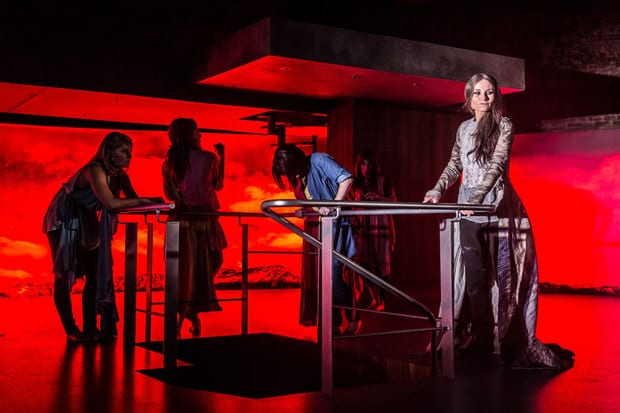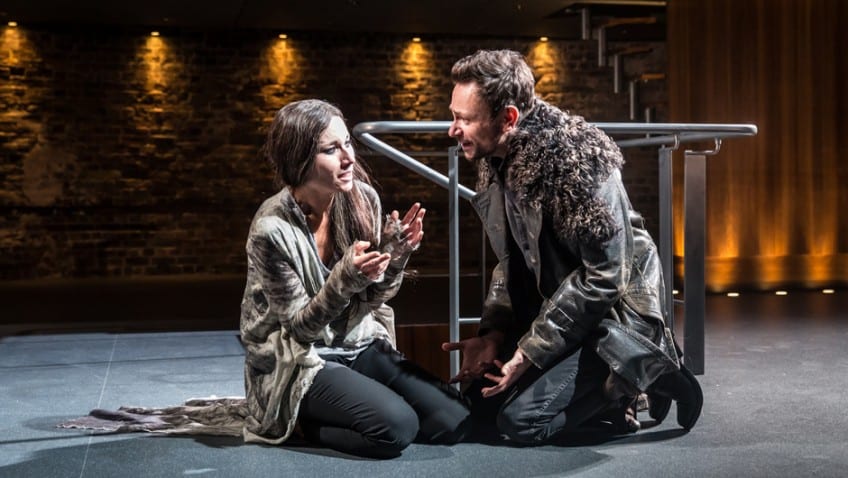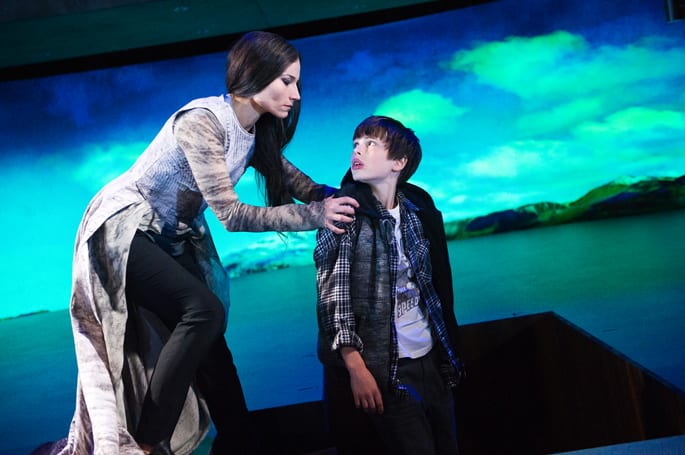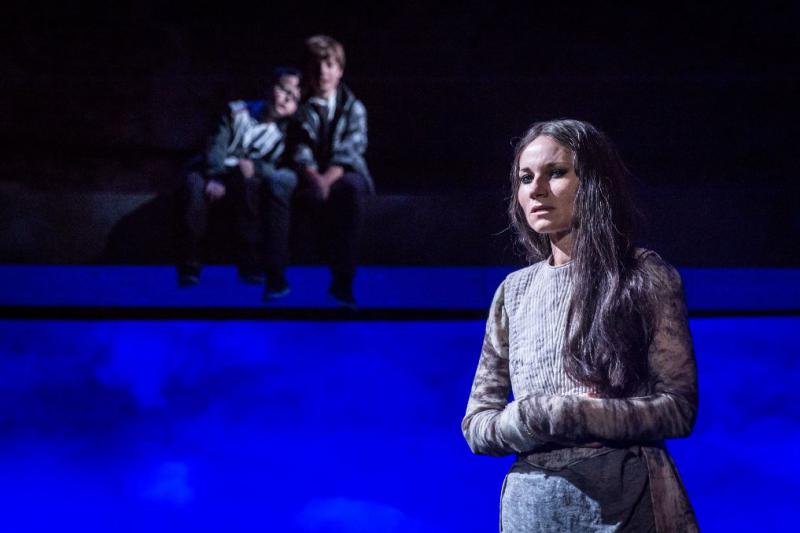In the dark, dimly lit Almeida Theatre, silver light gleams off a kitchen tap—it’s the only truly visible thing in the room before the play begins, and it implies with chilling horror the well-known ending of the Medea story. The Almeida’s production of Medea turns a probing eye to the story of vengeance and breaks it apart, only to pull it back together into something new and courageous. The voice of Medea the wounded woman echoes absolutely throughout the entire production, knocking heads Jason’s entitled tones.
The production’s design and vision (set designer, Ian MacNeil) expands and carries the tones of the production. The set’s elegance is a mesh of a modern minimalist sensibilities and the barest hint of a Greek temple. It exudes a sense of a sterile home, perfect in stainless steel, empty but for a few scattered toy cars to remind you that children live here. Medea’s decision to leave reveals a wide panorama of colour and mountains reminiscent of a Paul Thomas Anderson film.
Rupert Goold’s production of Medea benefits from the fierce and pitiless work of writer Rachel Cusk—the new version of the play thrusts it into the 21st century, and reinvents the very idea of Euripides’s Medea. Don’t be fooled, the play is not a translation and it’s not Euripides’s original play but the skeleton of the Medea story is here, and in some ways, far more accessible for modern audiences. Medea is not a murderous witch, though with Kate Fleetwood’s terrifyingly good performance the leap to evil is not hard to imagine. She a sharp, wide-eyed haunted look like a hunted animal, and she stalks about the stage, reminiscent of Medea’s murderous tendencies, but holds herself like a woman warding off any more injury. Her blazing row with Justin Salinger’s Jason is a master class in rage and the destructive power of failed love; spitting ire and dripping with male condescension on the part of Jason, you have to wonder how they held themselves back from physically hurting each other.
Woman is the focus of Cusk’s production. Cusk pulls out the embattled woman of the Medea myth and explores her resentment and her rage. A divorce involves everyone; the judgment and criticisms of the entire world fall on the head of Medea. The Chorus—imagined cleverly as a group of gossiping mothers, walking half asleep through their own marriages even as they castigate Medea—exile her from the rest of the world because of her failure to make her marriage work. Medea scrabbles to save what remains of her life, and beating against the revelation that a woman, once she becomes a mother and wife, ceases to be anything else.
Cusk’s depiction of Medea is perhaps more tender than Euripides’s. A sense of grief and empathy fill the play, as Medea watches as her own story rewritten without her name in it. This might not really even be Medea as we know it, so transformed and new in its shape and story. Cusk’s play does away with Medea’s murder of her sons, and in doing so, removes any of Medea’s culpability. “There are many ways to kill a child,” Medea says, but this is an unconvincing excuse, and even more extraordinary is the boys’ own attempted suicides. We lose the dramatic tragedy of Medea, and the ending’s anticlimax is disappointing for a play riding a palpable wave of tension throughout the play. This new Medea is unfamiliar to us, but only in shape; Medea the Woman, the Woman Betrayed, is so rooted in our world and our lives that it is difficult to look away and not listen to her tell her own story.




